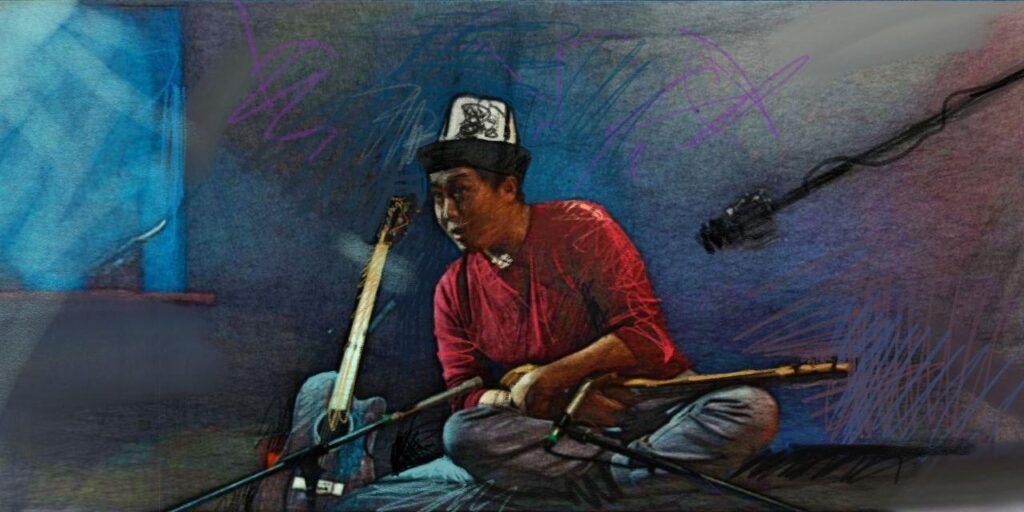Traditional Storytellers in Kyrgyzstan Face Scrutiny From Authorities
Asylbek Maratov is a performer of folk-style poetry in Kyrgyzstan, a form of cultural expression that dates from the time when nomads roamed Central Asia and involves music and improvisation, often delivered at ceremonies and other special events as well as on social media Lately, Maratov and some other akyns, as these oral storytellers are known, have faced pressure in a country where the government is tightening up on expression as a way to ensure what it calls ‘national stability’. The tension points to sensitivities about how freely they can sing or talk about issues that they think are relevant to society as part of a tradition that is steeped in epic tales of the past and has been recognized by UNESCO as intangible cultural heritage. Maratov said he got a warning from the State Committee for National Security for performing songs on political topics at a concert, the Kloop news organization reported this week. It said the performer commented about a caution from the state authorities on Facebook on Wednesday, though a link to the social media post says the content is unavailable. "I received a warning, now may God help me. I don't wish prison on anyone, let the people have joy," Maratov said in the post, according to Kloop. Maratov has previously performed his craft at the World Nomad Games, an event that celebrates culture and sports in Central Asia and is held every two years. He has commented on corruption, a sensitive topic for a government that has promised to curb graft but faces questions about transparency and accountability. Late last year, President Sadyr Japarov signed a new law that toughens punishments and restrictions, for example, barring people convicted of corruption from holding state and municipal jobs. The president has said that his family members won’t get mixed up in state affairs, but reports such as the one last year that his son planned to build the biggest golf course in Central Asia raised some concerns about business ethics. Akyns draw from a tradition that goes back centuries, evoking history, philosophy, and spirituality in their commentaries and sometimes engaging in competitions similar to rap battles. They play instruments such as the Kazakh dombra or Kyrgyz komuz. There is a school for akyns in Kyrgyzstan. They are able to reach a much wider audience than in the past because of YouTube and other social media platforms, and a few in Kyrgyzstan have directed sharp criticism at their country’s leadership. This month, Kyrgyzstan’s Supreme Court upheld a lower court’s sentence of three years in prison for Askat Zhetigen, an akyn who was found guilty of calling for the violent seizure of power, the 24.kg news service reported. Zhetigen had used harsh language while criticizing the authorities on social media. Kloop, the investigative news outlet that reported on the warning against Maratov, was closed under a court order in Kyrgyzstan last year in what media advocates said was a targeting of journalists and a shrinking of free speech in...






